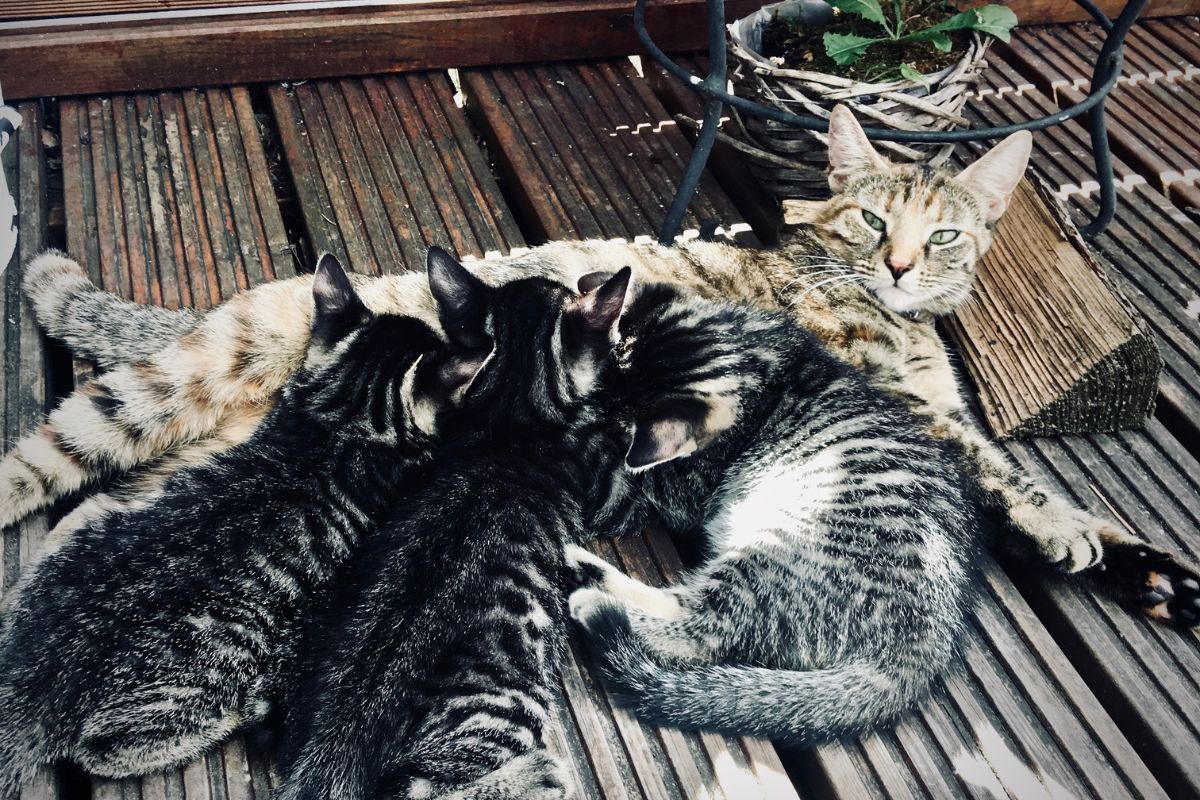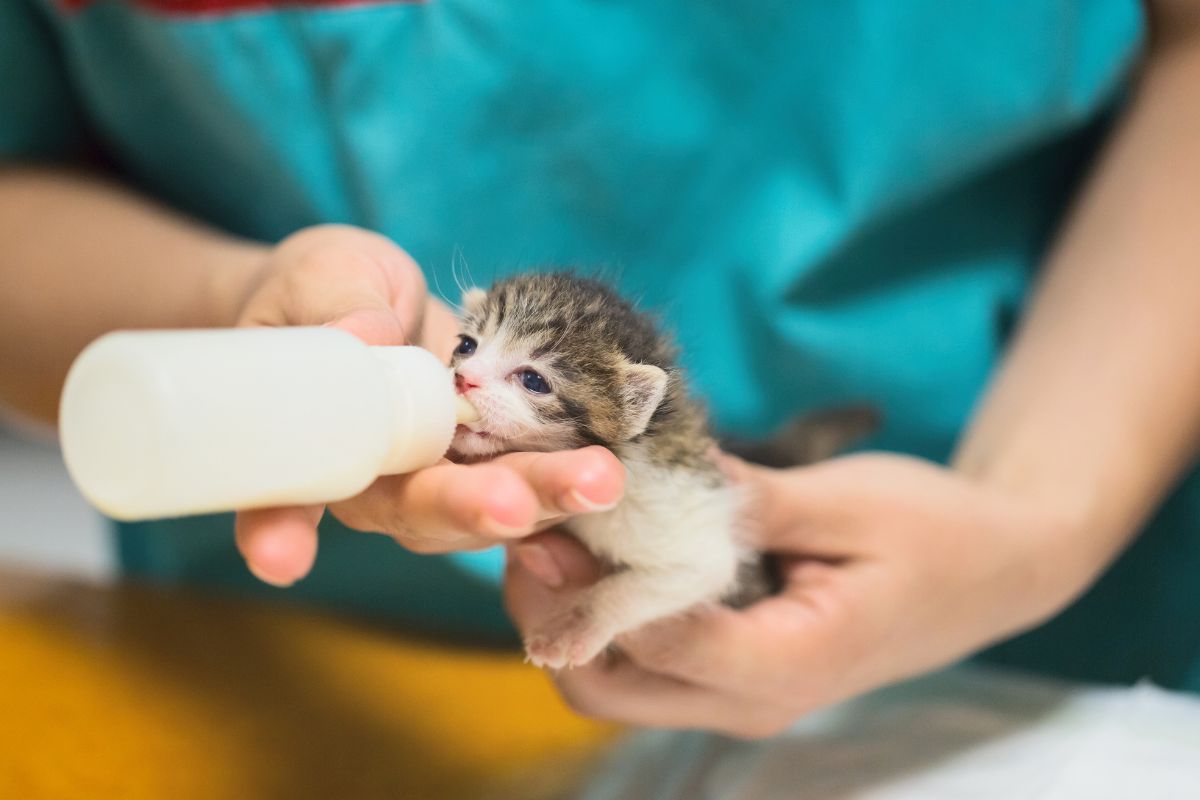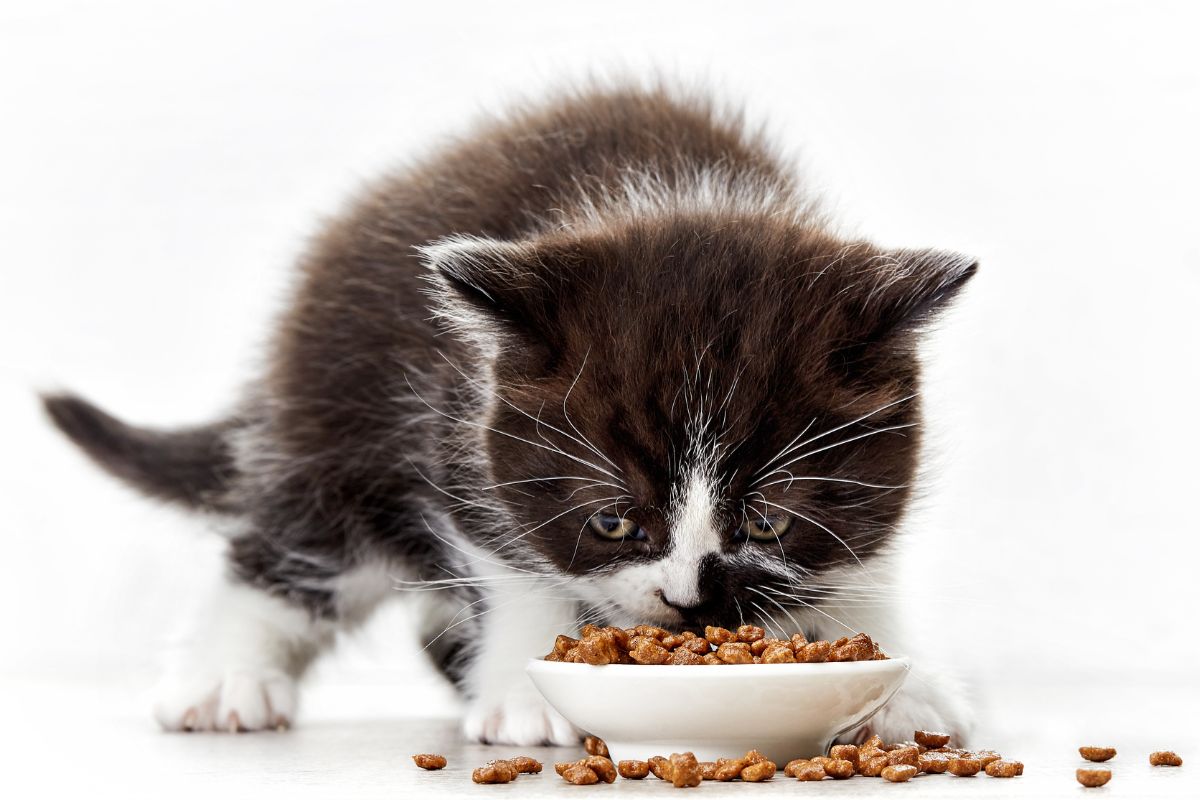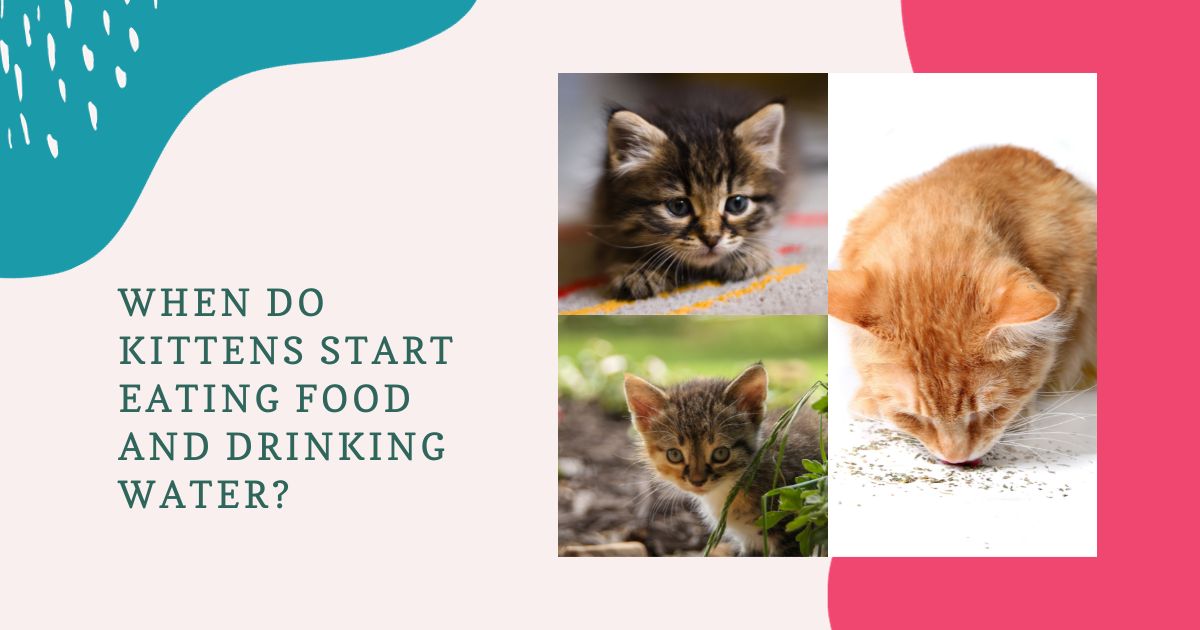When do kittens start eating food and drinking water? Learn to ensure proper growth and timelines for baby kittens.
Having Baby Kittens in Your Home
Having baby kittens in your home is both a joy and a responsibility. A three-week-old kitten primarily relies on its mother’s milk for nutrition. However, by the time they become an eight-week-old kitten, they should transition to solid food and start drinking water.
It’s crucial to understand these developmental milestones to ensure their healthy growth and well-being.

When Do Kittens Start Eating Food and Drinking Water?
It’s important to note that transitioning from mother’s milk to solid food is a gradual process. A four-week-old kitten may begin to show interest in wet cat food. At this age, you can start offering it alongside mother’s milk.
By six weeks, most kittens readily eat solid food. So, if you’re wondering when do kittens start eating food, around four to six weeks is the typical timeframe.
By the eighth week, they should also be accustomed to drinking water regularly. This ensures that they receive the nutrition and hydration necessary for healthy growth.
How to Wean a Kitten
Adopting a phased-based approach for the best outcomes is essential. Generally, how long kittens nurse depends on various factors, including their health and the availability of mother’s milk.
A five-week-old kitten is usually ready to start the weaning process. Begin by offering a mixture of wet cat food and kitten formula.
Gradually reduce the amount of formula while increasing the solid food portion over a week. This planned approach helps kittens transition smoothly while meeting their nutritional needs.

How to Care for a Kitten
When you find a stray kitten, especially one that’s only two weeks old, specialized kitten care becomes absolutely essential. Mother’s milk is the ideal nutrition at this stage, but a stray kitten won’t have that option.
You’ll need to substitute with high-quality kitten formula, avoiding cow’s milk as it can cause digestive issues. Sterilized bottles or even syringes can be used for feeding. Keep the kitten warm, as they can’t regulate their body temperature well.
Seek immediate veterinary care for a thorough check-up and guidance on vaccinations and potential de-worming. It’s a high-responsibility situation, demanding careful attention to detail to ensure the stray kitten grows into a healthy adult cat.
Our Top Kitten-Weaning Tips
Understanding when to wean kittens is pivotal for their developmental milestones. Ideally, weaning starts between the ages of four to six weeks. The first step is to prepare a gruel by mixing high-quality wet kitten food with kitten formula.
This mixture should be offered in a shallow dish, facilitating easy access for the kitten. Over the course of the next seven to 14 days, you should gradually reduce the amount of formula in the mixture while increasing the quantity of solid food.
During this period, observing the kitten for signs of digestive upset or allergies is crucial. Ensure to weigh the kitten regularly to ensure adequate weight gain, a key indicator of nutritional intake and overall health. Regular veterinary check-ups are advisable to monitor the kitten’s development and discuss any concerns.
This comprehensive approach not only guides you on how to raise a kitten but also ensures a smooth and healthy transition from a milk-based diet to solid food and water. Understanding these nuances makes the weaning process more effective and less stressful for both you and the kitten.

The End
In conclusion, understanding when do kittens start eating food and drinking water is pivotal for anyone caring for these young felines. This information guides you through critical developmental stages, from relying on mother’s milk to gradually introducing solid food and water.
By knowing what to expect at each milestone—whether it’s a three-week-old kitten starting to explore or an eight-week-old kitten fully transitioning to solid food—you can provide the best care possible.
Always consult a veterinarian for personalized guidance, especially in unique cases like caring for stray kittens. Doing so sets the stage for a lifetime of health and happiness for your kitten.

